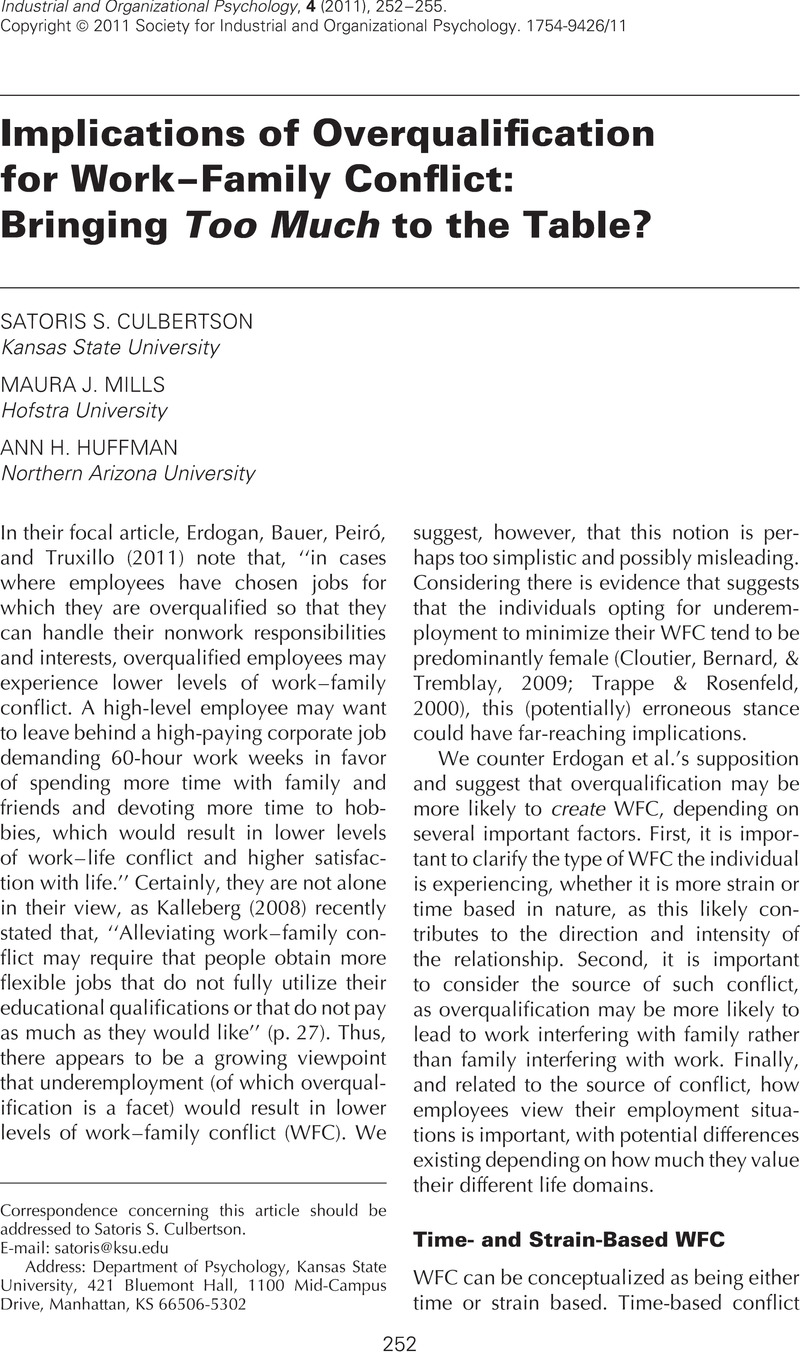Crossref Citations
This article has been cited by the following publications. This list is generated based on data provided by Crossref.
Erdogan, Berrin
Bauer, Talya N.
Peiró, José María
and
Truxillo, Donald M.
2011.
Overqualification Theory, Research, and Practice: Things That Matter.
Industrial and Organizational Psychology,
Vol. 4,
Issue. 2,
p.
260.
Liu, Songqi
and
Wang, Mo
2012.
The Role of the Economic Crisis on Occupational Stress and Well Being.
Vol. 10,
Issue. ,
p.
1.
Lee, Gregory John
2015.
Training match and mismatch as a driver of key employee behaviours.
Human Resource Management Journal,
Vol. 25,
Issue. 4,
p.
478.
Gkorezis, Panagiotis
Erdogan, Berrin
Xanthopoulou, Despoina
and
Bellou, Victoria
2019.
Implications of perceived overqualification for employee's close social ties: The moderating role of external organizational prestige.
Journal of Vocational Behavior,
Vol. 115,
Issue. ,
p.
103335.
Zhang, Junwei
Li, Ye
Zhang, Yajun
Zhang, Haitao
and
Tang, Jiao
2023.
The effects of perceived overqualification on spouse undermining and support.
Journal of Managerial Psychology,
Vol. 38,
Issue. 5,
p.
352.
Toker, Burcu
and
Biçkes, Durdu Mehmet
2024.
Algılanan Aşırı Nitelikliliğin İş Performansı Üzerindeki Etkisi: Dışsal Prestij Algısının Düzenleyici Rolü.
Hacettepe Üniversitesi İktisadi ve İdari Bilimler Fakültesi Dergisi,
Vol. 42,
Issue. 3,
p.
414.



